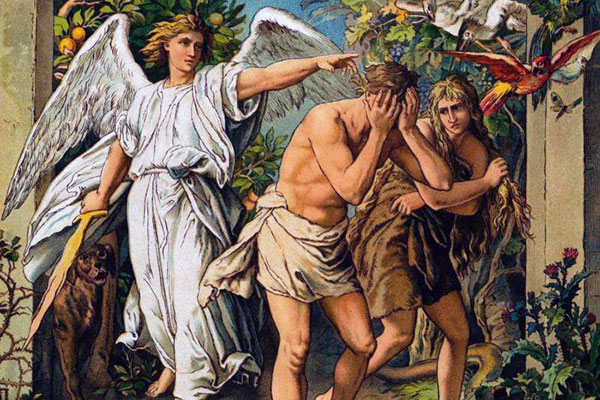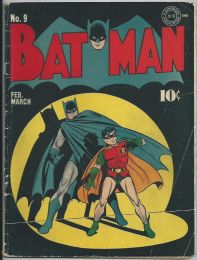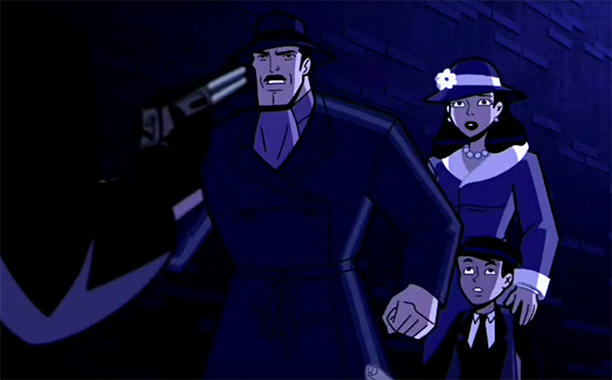Loss of Innocence
 As we discussed in the introduction to the novel, loss of innocence is dominant theme in To Kill a Mockingbird. To review, loss of innocence goes hand in hand with coming of age. Coming of age is generally a more positive term, often accompanied by some ritual. For a good discussion of coming of age, check out the article on Toward the Examined Life‘s website. For a look at a few other books that explore loss of innocence, check out Liberty Falls Down.
As we discussed in the introduction to the novel, loss of innocence is dominant theme in To Kill a Mockingbird. To review, loss of innocence goes hand in hand with coming of age. Coming of age is generally a more positive term, often accompanied by some ritual. For a good discussion of coming of age, check out the article on Toward the Examined Life‘s website. For a look at a few other books that explore loss of innocence, check out Liberty Falls Down.
Loss of innocence is such a common theme that you don’t even have to be reading great works of literature to encounter it. For your extra credit this six weeks, share a movie, television program, or modern novel you have read that explores the theme of loss of innocence. A key here is that you cannot choose something that is already generally accepted as literature, so no selecting Lord of the Flies (excellent loss of innocence novel, but not what we’re looking for here).
What do I do?
 Once you’ve selected your work, explain how it explores loss of innocence. Who was innocent? How do you know that character was innocent when the novel/movie/etc. started? What happened to cause loss of innocence? Don’t just answer these questions in short answer format. Give us a discussion. To get you started, I’ll respond first below to give you an idea of how to write your answer. Once the recommendations start rolling in, respond to your classmates in a positive academic discussion.
Once you’ve selected your work, explain how it explores loss of innocence. Who was innocent? How do you know that character was innocent when the novel/movie/etc. started? What happened to cause loss of innocence? Don’t just answer these questions in short answer format. Give us a discussion. To get you started, I’ll respond first below to give you an idea of how to write your answer. Once the recommendations start rolling in, respond to your classmates in a positive academic discussion.
The Fine Print:
All responses to be considered for extra credit must be submitted by September 19, 2016. The more active you are in the overall discussion, the more points you will get; you can earn up to 30 points to be added to any single major exam grade. Each work is first come, first served, so once someone has introduced a title, no one else can intr oduce it. To be eligible for extra credit, you must introduce a title. I will review comments once a day, generally in the afternoon. If you and another student submit the same title on the same day, the comment that is time-stamped the earliest will be the one approved. Once I read your comment and it appears on the website, you will know that your title is approved.
oduce it. To be eligible for extra credit, you must introduce a title. I will review comments once a day, generally in the afternoon. If you and another student submit the same title on the same day, the comment that is time-stamped the earliest will be the one approved. Once I read your comment and it appears on the website, you will know that your title is approved.
Check out my example below for guidance. Although I do have research to outside sources, you do NOT need to do this!
Batman
The Dark Knight, the Caped Crusader, the defender of Gotham City, whatever you call him, Batman has been an iconic figure in American pop culture practically since his first appearance in Detective Comics (now DC) in May 1939. (In fact, according to The Telegraph, Batman’s popularity has made this issue of Detective Comics is one of the world’s most valuable comic books, recently selling for $1,380,000– quite an increase in value from its initial 10 cent cover price!)
What you may not think about is how his origin story is a classic story of loss of innocence. For those of you who have been living under a rock, here is a quick version of the story. Bruce Wayne, the son of Dr. Thomas Wayne and his wife Martha, is born into privilege and wealth, living with his parents in Wayne Manor until tragedy strikes. In the version of the story portrayed on the cartoon incarnation of Batman, Batman: The Brave and the Bold, the eight-year old  Bruce Wayne is so insulated from reality that he coldly refuses a sentimental Christmas gift from his parents because they did not get him the present he really wanted. Trying to make it up to young Bruce, his parents take him to a movie after which they are murdered in an alley on the way home.
Bruce Wayne is so insulated from reality that he coldly refuses a sentimental Christmas gift from his parents because they did not get him the present he really wanted. Trying to make it up to young Bruce, his parents take him to a movie after which they are murdered in an alley on the way home.
This traumatic event clearly marked the end of Bruce Wayne’s childhood. Although his wealth still insulated him in practical ways from the harsh world, the parents he had taken for granted were gone. According to author Tim Lott, at the cornerstone of the innocence of children is “the myth of the infinite power and goodness of parents.” Young Bruce learned that his seemingly all-powerful parents were mere mortals in the most cruel way of all. In his article in the Guardian, Lott goes on to say, “Innocence goes deeper than ignorance. It is some mysterious operation of the imagination, the part that can enter into mental universes from which one is soon to be forever excluded.” In that alley, Bruce Wayne was forever excluded from the universe in which parents can protect their children; the child Bruce died, and a new being was born.
 From that night on, Bruce Wayne devotes his life to training so that he can rid the city of the type of evil that ripped his childhood from him and forced him to see the world as a dangerous place. Clearly the spoiled, protected, innocent child who he was before his parents’ murder exists no longer. The world he had lived in only hours before, in which the particular toy he received for Christmas, no longer existed. Of course, not all loss of innocence is this traumatic or sudden, but Gotham City’s Dark Knight was born when Bruce Wayne’s childhood innocence died.
From that night on, Bruce Wayne devotes his life to training so that he can rid the city of the type of evil that ripped his childhood from him and forced him to see the world as a dangerous place. Clearly the spoiled, protected, innocent child who he was before his parents’ murder exists no longer. The world he had lived in only hours before, in which the particular toy he received for Christmas, no longer existed. Of course, not all loss of innocence is this traumatic or sudden, but Gotham City’s Dark Knight was born when Bruce Wayne’s childhood innocence died.
Yes, I am a superhero geek. I love to watch Justice League, JLU, Batman, Superman, Batman Beyond, Young Justice…Well, you get the idea. I do really mainly like the cartoons; the movies just take themselves waaay too seriously, but I did really enjoy Jessica Jones.
So, what modern work of pop culture have you encountered that explores loss of innocence? Start the discussion below.


“Kill You Last” is the third novel in a murder mystery trilogy written by Todd Strasser. This novel, along with the previous novels, is set in a small community of rich families, called Soundview. Written in first person in the point of view of the Shelby Sloan, a high school student who about to graduate, the novel describes her struggles with her family being trapped in a police investigation.
Shelby Sloan seemingly perfect life in “Kill You Last” was flip upside down. She was just about to graduate and go out into the real world as a college student. The only difficulty she had was choosing between a college close to home or another one far away. Shelby never fathomed the possibility that her family would be under scrutiny in a police investigation. One day, two underaged clients of her father’s photographer studio/modeling business vanished , and the prime suspect is Shelby’s dad. Evidence begins to pour in against Shelby’s father, and on top of that, Shelby begins to receive emails swearing vengeance on her father. In addition, she also has to deal with paparazzi, hateful stares at school, and everyone’s belief in the community that her father is guilty. Caught in the middle of the investigation, Shelby struggles with the possibility that her father might not actually be as good a person as she thinks he is, and she is forced to looked through her memories of her dad being weird with other girls. Once the police find the two missing girls’ bodies brutally mutilated, and more girls are discovered missing in connection with her father’s studio, Shelby must faced the truth that the people most important to her might not be as innocent and trustworthy as they seem.
To clear her dad’s name and to find the source of the person who is sending her emails, Shelby, along with her friends Whit and Roman, goes digging for the true killer/kidnapper. As revelations unravel, Shelby discovers the shocking truth that her dad is innocent of murder, but he’s not innocent other awful things. In reality, her dad is a creepy, perverted person who took money from underaged teenagers by deceiving them into believing they had a chance of becoming big time models. She also discovers, in a climatic event towards the end of the novel, that her mom was the one brutally murdering her husband’s clients! Talk about a horrible way to get revenge!! Apparently, her mother and father had a rough marriage. Her father blamed her mother for the death of Shelby’s younger brother, and her father had been cheating on her mother with some of his underaged clients.
This was a turning point in Shelby’s life story. Realizing the truth, She testified against both of her parents knowing what they did wrong. Discovering the truth, marked an end of her living a blind carefree life and loss of the innocent trust she had in people. After this whole ordeal, she no longer believes that people are as good as they seem to be. She loses the ability to trust people wholeheartedly, and develop a new sense of fear stemming from knowing that if she hadn’t search for answers, her father and mother would have gotten away with all their wrongdoings. By the end of the novel, she prays for the day she can finally become a teacher like her sister Beth and put the traumatic experience behind her.
LikeLike
This is a good job of explaining loss of innocence!
LikeLike
In the television series, The 100, it seems that the most emotionally strong and seemingly confident characters have a sad loss of innocence. This television series follows 100 prisoners under the age of 18 that get sent to Earth 97 years after a neuclear war killed all living life except for the people who escaped into a spaceship and start a new life. These 100 teenagers are sent to see if life on earth is survivable, but communication breaks during landing leaving them on their own. It points out multiple character’s loss of innocence, but three of them are different from the rest and are great examples of loss of innocence in this television series.
The first example is the main character, Clarke. Clarke quickly proves herself as a good leader at the beginning of the series and gains many followers. The other prisoners view her as someone that everything has always gone her way and has had an easy life, but they are wrong. Clarke’s loss of innocence is the death of her father. Clarke’s father was doing something that he truly believed had to be done, even though it was illegal and punishable by death. Clarke had no idea that this was illegal, she believed in the cause and helped her father with it. When he had almost completed his idea, one of Clarke’s friend’s told on him and he was soon executed. Clarke, now knowing that if continuing could mean getting locked up until she turned 18 to get executed, continued on with the project until she was caught and locked up. Before her father’s death Clarke was doing what she thought was okay to do, but after the death she knew the consequences but did what she knew had to be done.
The next example is of Bellamy, the protective older brother. Bellamy does not really care for rules or many people, except for his sister. Bellammy’s loss of innocence is the birth of his younger sister. On the space ship,reffered to as the ark, ther is a rule stating that women can only have one child, that if they have multiple the mother would be executed and the child would be locked up until old enough to be executed. Bellamy had to take care of and hide his younger sister. Bellamy had to take up such a huge responsibility at a very young age. He hid his sister for 16 years until she was found and locked up. When Bellamy found out about all of the prisoner going to Earth, he got himself locked up so he could protect her.
The last example is of Charlotte. Charlotte is not out going or a very social person but gets friends easily because of her seemingly innocentness. People see her in the begginning as a sweet and innocent person, but is soon misproven. Charlotte’s loss of innocence was when her parents were killed. Charolette dealt wtith her parents’ death in a different way. Rather that choosing nonviolence, Charlotte wanted revenge for her parents’ death. The show never says how her parents broke a law, just that they did and were going to be executed because of it. Charlote said she was locked up because one of the guards said she assaulted him when they were taking her parents away to be executed. To avenge her parents’ death, she wanted to kill the son of the man responible for their death, who was also going back to Earth.
LikeLiked by 1 person
I’ve seen ads for this, but somehow I haven’t watched it. It sounds great! You should do their PR. You could have established the innocence a little stronger, but still I get the idea.
LikeLike
This is an outstanding discussion of loss of innocence in general, and it makes me want to read (read? Is it a book?) Tokyo Ghoul! This sounds fascinating! Who else wants to experience this world now?
LikeLike
Mrs. rains, I would like to do the book Series of Unfortunate Events for my extra credit.
LikeLiked by 1 person
This was the 2016-17 Extra Credit. I will be posting the the 2017-18 Extra Credit next week. It will be a similar type of project. I’m impressed that you are so involved so early!
LikeLike